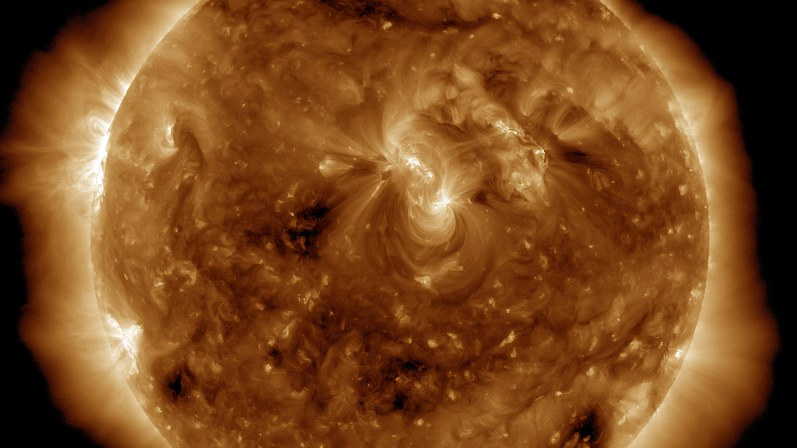
An international team led by Chinese astronomers have shed light on a mystery in solar physics: Why temperatures in the Sun's upper atmosphere are vastly hotter than its surface.
The study published in this week's Science journal showed that jet-like spicules erupted from the surface of the Sun may help heat the atmosphere to 200 to 500 times hotter than the roaring furnace below when those spicules emerged within minutes of the appearance of small magnetic flux around strong magnetic fields with opposite polarity.
Using the Goode Solar Telescope at the Big Bear Solar Observatory (BBSO) in the United States, Tian Hui, a professor at Peking University, and his collaborators revealed in detail what appears to be a likely mechanism – jets of magnetized plasma, between 200 and 500 kilometers wide, spurt like geysers from the Sun's upper atmosphere into the corona.
"When magnetic fields with opposite polarities reconnect in the Sun's lower atmosphere these jets of plasma are powerfully ejected," said the paper's coauthor Cao Wenda, BBSO's director.
This is the first time astronomers have seen direct evidence of how spicules are generated, according to the researchers.
Also, their findings are echoed by images captured in the extreme ultraviolet spectrum by NASA's Solar Dynamics Observatory spacecraft. The spacecraft's observations showed that it is common for spicules to be heated to typical coronal temperatures.
Source(s): Xinhua News Agency